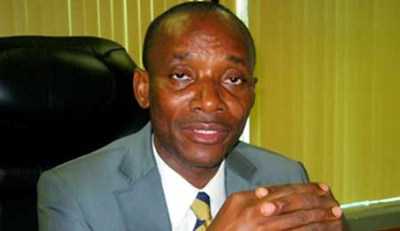 Chairman of the Nigerian Electricity Regulatory Commission, Sam Amadi
Chairman of the Nigerian Electricity Regulatory Commission, Sam Amadi
Nume Ekeghe with agency report
Nigeria’s electricity industry is being hindered by producers’ inability to raise finance and natural-gas shortages, curbing companies’ ability to boost INVESTMENT in output as the country suffers from daily blackouts, the country’s energy regulator has said.
Peak electricity output of Africa’s biggest economy is about 3,800 megawatts, with another 1,500 megawatts unavailable because of gas shortages, Bloomberg quoted the Chairman of the Nigerian Electricity Regulatory Commission, Sam Amadi to have said.
South Africa, with a third of Nigeria’s population, has eight times more installed capacity. One megawatt is enough to provide energy to 2,000 average European homes, or about 333 in Japan.
“There are still issues of creditworthiness. Power generation is not coming on board because the distribution companies are weak, they’re not credit-worthy and can’t get financing.”
Distribution companies are struggling to get consumers to pay their bills and this means that their revenue is so poor they are unable to pay producers for power, he said.
Nigeria, beset by frequent blackouts, dismantled the state monopoly and sold hydro- and gas-powered plants to try bring in INVESTMENT needed to expand electricity supply. The industry requires $18 billion to $20 billion to boost supplies to 10,000 megawatts within six years, according to the nation’s privatisation agency.
Power generation and distribution companies can now access a N213 billion ($1 billion) bailout announced by authorities in September to shore up struggling operators, Amadi said. The fund is supposed to help them pay off gas-supply debts and meet debt-service obligations to lenders on loans of almost N500 billion, on which some were falling behind.
While Nigeria was the world’s fourth-biggest exporter of liquefied natural gas in 2012, it’s struggling to meet local demand for the fuel used by plants that generate at least 70 percent of the country’s electricity needs. The nation, which holds Africa’s biggest gas reserves of more than 180 trillion cubic feet, is expanding pipeline networks so that they can service power plants and industries and not just exports.



























